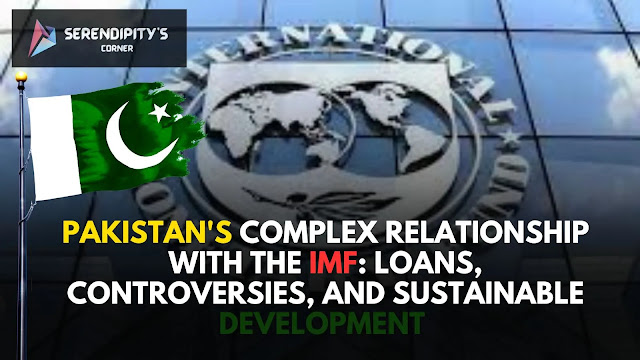 |
| Pakistan's Complex Relationship with the IMF: Loans, Controversies, and Sustainable Development |
Pakistan's financial history is closely intertwined with the International Monetary Fund (IMF). The IMF is a global organization that provides loans and technical assistance to countries experiencing financial difficulties. Pakistan has received a total of 22 loan agreements from the IMF, with the first loan being signed in 1958, just eleven years after the country's independence.
Pakistan's need for IMF loans has been caused by various reasons such as balance of payment crises, macroeconomic instability, and debt servicing difficulties. The most significant loans were received in 1988, 1998, 2001, and 2008. However, the relationship with the IMF has not always been smooth sailing. There have been instances where Pakistan failed to fulfill the conditions of the loan agreements, leading to the suspension of loan disbursements. For instance, in 1999, the military coup led to the suspension of a $1.6 billion loan from the IMF, and in 2011, the IMF suspended a $11.3 billion loan program after Pakistan failed to implement the required reforms.
Despite the setbacks, Pakistan continued to receive loans from the IMF, with the most recent one being in 2019 worth $6 billion. The loan was necessary due to Pakistan's ongoing balance of payment crisis and macroeconomic instability. In exchange for the loan, Pakistan agreed to implement a series of structural reforms such as the implementation of a market-determined exchange rate and the reduction of government borrowing.
Critics argue that the IMF's loan conditions have often been too harsh, leading to economic hardship and social unrest in the country. Additionally, there have been concerns about the lack of transparency and accountability in the loan process, with some critics arguing that the IMF's loans have been used to prop up corrupt governments.
Nonetheless, the IMF remains an important partner for
Pakistan as the country seeks to address its ongoing economic challenges and
promote long-term sustainable development. The relationship with the IMF has
been controversial, but the loans have been necessary to address Pakistan's
financial difficulties. Pakistan is now implementing the structural reforms
that were agreed upon in the latest loan agreement, which are aimed at
stabilizing the economy and promoting sustainable growth
Comments
Post a Comment